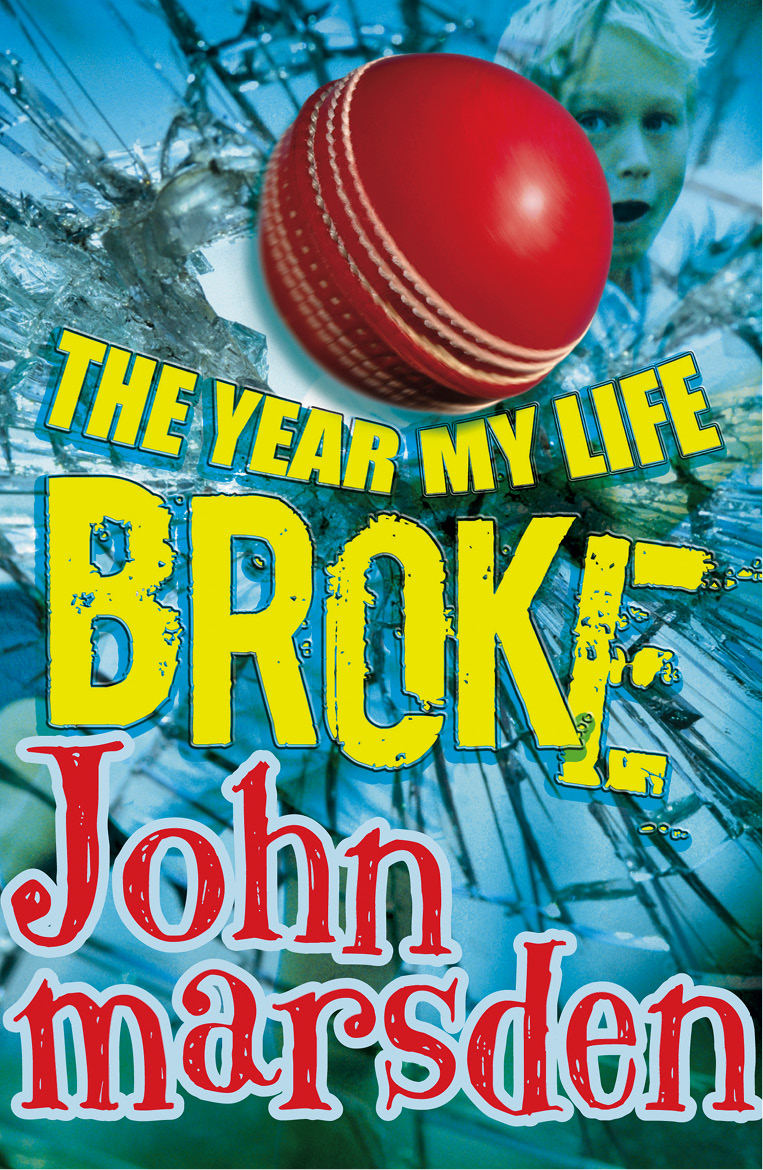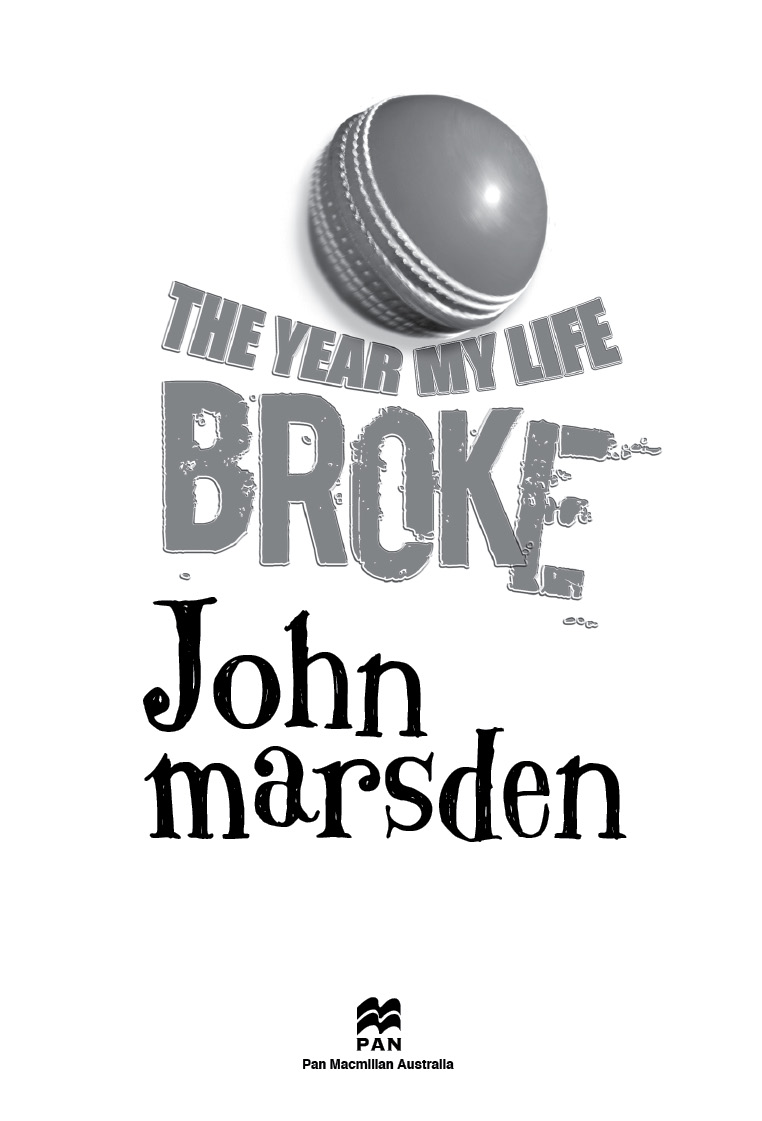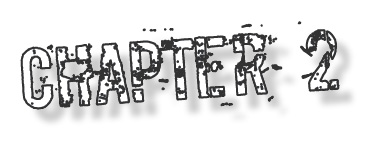The Year My Life Broke
Read The Year My Life Broke Online
Authors: John Marsden

About
T
he Year
My Life Broke
You move into the most boring street in the most boring town in Australia. Tarrawagga is a hole. Its only ambition is to be a crater, and it has every chance of getting there.
The last thing you expect is to have action all around you, dangerous strangers in the backyard, and bullets flying past your ears.
At your new school, everyone thinks you're the biggest loser in Grade 6. Little do they know. When they realise the truth, teachers and students alike are in for the shock of their lives.
Funny, gripping and full of surprises,
The Year My Life Broke
could be the most real book you read this year.

Contents
To Kris, the light of my life.

We drove to Tarrawagga in the second-hand Accord that Dad got at an auction. It wasn't the same as our groovy black Audi that the receivers had taken. The Accord was crap. The seats had burn marks and the air-con didn't work. It came with an ashtray chock-a-block with cigarette butts. The way the engine smoked, it could have been hooked on cigarettes. It coughed like it had lung cancer.
So why did we have to shift to Tarrawagga? Ask my parents. It wasn't my idea, that's for sure. Our new house was as bad as the Accord. The first time I saw it was the day we moved in. My grandfather had bought the place a few years back to rent to people and now he was renting it to us. I hated it. For one thing, it stank about as bad as the Accord. For another, it wasn't much bigger than a car. It was about a quarter the size of our old place. But at least I finally got my own bedroom, after eight years sharing with Callan. Smaller house, more bedrooms, who would have thought?
I got first choice of rooms, because I'm the oldest. I picked the one that looks out onto the back garden. One of the best things about that was watching Pippa's tantrum when I chose it. Mum and Dad think she's always so perfect that it's quite satisfying when they see her as she really is. This tantrum was about a record â three days â but it got boring after a while. After about two minutes actually.
The thing is, though, my room had paint peeling off the walls, Callan's had holes in the ceiling and Pippa's door stuck so hard I had to open it for her whenever she wanted to go in. The bathroom smelt the worst, really mouldy, and the whole house was grubby.
Mum and Dad said I could paint my bedroom, when they got some money again. I figured that would be when I was about fifty. I hoped we wouldn't be staying that long.
Our new backyard was big, which was something. The lounge room was small but Dad said he might extend it in a few months. I hoped we wouldn't even be staying that long. The walls of the kitchen were greasy, but at least we got a new microwave, 'cos the removalists dropped the old one. One of them tried to carry it under his arm, with about six other things, but he fell off the back of the truck. So, bit of a bonus there. If I'd known you could score new stuff that easily, I would have tripped them up while they were carrying the TV.
After a couple of days I started to take some notice of the houses around us. They weren't much better than ours. The one across the road was the worst â they had two ginormous dogs, the size of horses. Great Danes, they were called, and they spent all day prowling up and down the fence barking at people. I crossed the street whenever I got near them.
Just about every time I looked at the place next door, the police were there. That worried me a lot. Were our neighbours big-time crims? What were they doing? Growing drugs? Was it the local Mafia headquarters? How many bodies were buried in their backyard? It made me nervous.
You couldn't see over the fence very easily, because of all the bushes and trees and stuff on our side, so I couldn't see what they were up to. I heard a girl's voice a few times, and she sounded about my age, but I figured if her parents were crims, she wouldn't be easy to get to know.
On the other side was a house that seemed empty, but I couldn't be sure about that, because of the high fence between them and us. There were two front windows, one on each side of the door, but the blinds were always down, so it looked like a face with closed eyes.
Going to school on the bus I'd try to work out why a house would sit empty like that. Was it for sale? Nuh, no big sign saying
get in quick â opportunity only knocks once
, like the house opposite the school. Was it someone's holiday house? Excuse me while I laugh like a cracked kookaburra. You wouldn't go to Tarrawagga for a holiday. The biggest attraction in Tarrawagga was a park down the end of our street, about half the size of a basketball court, with two swings, a climbing frame and a slide that dumped you in a sandpit decorated with dog crap.
Was the house deserted, abandoned? Well, maybe, except it was well looked after. Someone must have mown the lawn every couple of weeks, I guess while I was at school, 'cos I never saw it happening. But their lawn looked better than ours, and the garden was always weeded and stuff.
Once in a while I felt like there were people in that house. I don't know, I just felt like there was activity there, life. I'd think I heard voices. But I never saw anybody.
When we moved to Tarrawagga I'd hoped we'd be in a street with lots of kids, kids my age who I could play with. Struck out there but. You could stand on the footpath and look to the right and on a good day you'd see an old white-haired Vietnamese man walking at a metre a minute on his way to the shops, and if you looked to the left you'd see this blonde-headed lady with three kids all under the age of one and a half, crying and screaming and whingeing. And sometimes the kids were crying and screaming and whingeing too.
Going past you, about ten times a day, was a huge lady who seemed a bit NQR and who drove around on a ride-on mower. From the first time she saw us she always wanted to talk to me and my brother and sister but she cackled more than she talked, so we didn't have a lot to say to each other. One time she ran out of petrol just along from our place and my dad drove her to the servo to get fuel. He said he had to make her stub out her cigarette when he put the fuel in her tank, because she kept leaning over to watch while he was pouring it.
Secretly I would have liked a go on her ride-on, do a bit of Formula One up and down our street, but I didn't think that was going to happen, and I wasn't going to ask the lady for any favours.
Our house was bad enough, but I could have put up with it. For me the real problem was Tarrawagga. You know they call some towns real holes? Well, Tarrawagga was the hole that the other holes fell into. It was the kind of town that gave holes a bad name. It was 40 k's from the city . . . 40 k's and forty years. If you've ever had a piece of chewy in your mouth for a week and a half, you've got the taste of Tarrawagga. The streets all had the look of roads that had nowhere to go. They just ran along in straight lines until they lost interest. There were the messy old streets, like ours, and they were bad enough, but a couple of blocks away were the new ones, and they were like daytime TV. Houses built by robots, robots on Ritalin. Some were dark red brick and some were medium red brick and the rest were light red brick, except for a few weird, wacky, way-out ones that had cream bricks. Boy, some people live dangerously.
Each house had a double garage at the front and, believe me, the garage doors were the most interesting part. Some had signs stuck in the front lawns saying things like
mayfair home decoration
or
allen's auto-electrical
, and that was the only thing that made one house different from the next one.
Riding past these places on my bike was like riding an exercise bike at a gym: nothing to look at, nothing to smell, nothing that came running out at you, barking and bouncing and wagging its tail. If they had dogs they'd been put under the Stupefy spell. These people wouldn't have had goldfish, because goldfish are too hard to control. Even the snails had fled, long ago. The only things that moved were the lawnmowers. Half the lawns were artificial, but the only way you could tell the artificial lawns from the real ones was by the lawnmowers.
I was trying my best to be positive, but I did say to Mum one day, âThis place is as boring as baked beans.' She just gave me a look and said: âIt's always about people, Josh. Get to know some people, then it won't be so bad.'
I just wanted to be back in Abernathy, and I hated that we'd lost our money. I didn't like being poor.

Get to know some people, yeah, sure! That wasn't easy. The kids at school were all in their groups by the time we arrived, ten days into first term, so they didn't want to know me. My first day I sat next to a kid called Nirvana. Weird name, but he seemed OK, even if he only spoke three words to me all morning. âYeah', âno', âdunno', that was it. At recess he nicked off to play cricket. I wanted to follow him but I also didn't want to look desperate, so I ended up going in a different direction. My teacher's name was Mr Barnes and he was on playground duty. All he said to me was, âWe have quite a high turnover here, Josh, so the kids aren't always that friendly at first, because they don't necessarily expect you to stay long.'
Friendly! These kids were about as friendly as European wasps. I wandered around trying to look like I was totally cool being on my own. The same thing happened at lunchtime. At my last school, Abernathy, I'd been kind of a leader, I guess, so it felt funny to have no-one wanting to play with me. Eventually I did drift over to the cricket, and stood watching. I can't help myself, I love sport so much that I can't keep away. Especially cricket. And suddenly a kid called Marty, who I think was in one of the other Grade 6 classes, hit a classic on-drive straight towards me. Came like a rocket. All of these kids yelled at me to stop it. But I was too angry about being at Tarrawagga, and too angry at the way they'd been treating me. I just stood and watched the ball go past.
And it was weird, I became invisible. A moment ago they'd been shouting at me and I'd been the centre of attention. Then their faces went blank and they turned away and waited for another kid to get the ball. He came running past me like I didn't exist. I'd been half expecting that they would yell stuff like, âLoser!', âWhy didn't you stop it?', âPathetic!' But there was nothing like that. These were the kids who were serious about sport. You could tell they wanted to be good, same as I did. When I ignored the ball they lost all interest in me. I was immediately put in the basket of ânot interested in sport, not interesting to us'.
I watched the game go on, wondering what I'd done. Like, I'd just expelled myself from the group I'd most want to hang out with. I knew one of the main reasons I'd been popular at Abernathy was that I was good at sport. I stood there wondering what people would think of me if I was a sporting loser. It wasn't too late but. I could still get in with the group. If I hung around the game for long enough, another ball would come my way. A spectacular stop, a one-handed catch, a sharp run-out, and they'd take some notice of me. But I didn't do it. In a way it was like I'd suddenly started an experiment. Without planning it, I was testing to see what would happen if I didn't rely on my usual way of making friends. What if I was one of the losers of the playground, one of the outsiders? What if I had to rely on, I don't know, just my personality and stuff?
A second ball fired past me, this time hit by a kid called Rolf. Again I watched it go, and watched a kid chase it down. As he came back he muttered, âThanks for stopping it.'
âIt was going too fast,' I said, hardly able to believe that these words were coming out of my mouth. He must have thought it was too pathetic to be worth a reply, because he didn't say anything.
They had some pretty good players. Rolf was a classy batsman, especially to anything wide of the off stump. He wasn't too good against short balls though. Marty was a hard-hitter. Nirvana was pretty good on the off and hopeless on the leg. A boy named Michael bowled really fast and a girl named Shelley bowled fast off-spin and was accurate. Most of the kids playing were boys, but there were three or four girls.
Back at Abernathy they would have started training for the interschool games by now. They'd be missing me. I would have been captain if I'd stayed there. For three years I'd been captain of the Abernathy Tigers, who played on Friday afternoons â U10s, U11s and U12s. I'd been picked for the rep teams as soon as I was eligible â for two years now, and I'd been vice-captain of Southern Districts Under 12s last year.
The bell rang for afternoon school. I walked away from the cricket, kicking at the dirt. What had I done? What did I care anyway? I'd never wanted to come to this stupid school, never wanted to move to Tarrawagga, never wanted to leave Abernathy. I didn't care if I never made any friends. It didn't matter how many people I got to know in this dump: Tarrawagga was a hole. Its only ambition was to become a crater, and it had every chance of getting there.